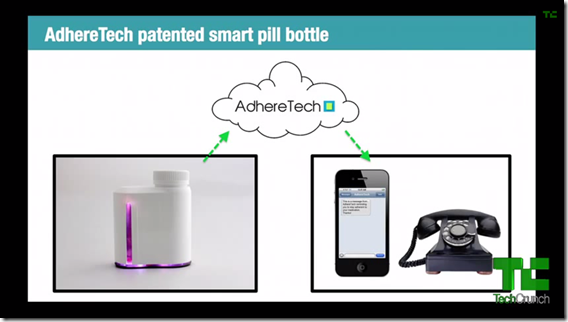Leverage Clouse Services to Power Digital Health Devices with Scalability and Real-time Data Analysis
I discovered at a hackathon a patented smart pill bottle invented by Josh Stein and his team at Adhere Tech. As stated in Adhere Tech’s blog post, the smart bottles may look like normal pill bottles, but actually send data to AdhereTech’s servers automatically. If a patient misses a dose, AdhereTech’s system immediately reminds the patient via an automated phone call or text message as well as on-bottle lights and chimes. If the system notices prolonged non-adherence, it can solicit feedback from patients via text or phone call to immediately understand the reasons for non-adherence, and intervene accordingly.
There are two technical issues that Adhere Tech, likely many digital health solutions, will need to address as its user base increases over time: scalability of the system and availability of data analysis dashboards for customers and end users.
Scalability
While the smart device only collects and sends two pieces of data to Adhere Tech’s servers, a timestamp of the open and close of the cap and a measurement of the amount of medication removed, the requirement of processing a large number of devices real-time can be demanding and that of data storage on the servers can be overwhelming. Clouse services can help address the scalability issue. I think technologies like Microsoft Azure Storage and Event Hub will be very applicable. More detail here.
Real-time Data Analysis
As massive amounts of data are accumulated on the servers, how will you allow clinical and pharm customers and end users securelyaccess and analyze? You can certainly build custom apps to meet the needs. But I would argue that you may want to provide a tool that can be easily used by them to get the right data and even visualize it at any time. I think tools and platforms like Microsoft PowerBI can help. More detail here.
Smart Pill Bottles and Adhere Tech
